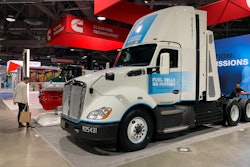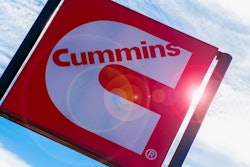The trucking industry introduced the concept of fuel surcharges to deal with fuel price volatility, unexpected fuel price changes over short periods. Fuel surcharges essentially pass on the extreme cost of freight fueling from the carriers to the shippers. It seems inevitable that the concept of fuel surcharges could be applied in creative ways to issues with fuel prices for alternative fuels like hydrogen, renewable natural gas, renewable diesel and electricity.
First, a little background on fuel costs in perspective of operational costs is needed. The American Transportation Research Institute (ATRI) indicates that fuel costs for fleets varied from a high of 38% of costs in 2011 to a low of 18% in 2020. As of July 4, 2022, the Energy Information Administration (EIA) reported the national average diesel price was $5.675/gal, up $2.344 from the prior year. I expect that fuel costs are returning to the 2011 percentage of motor carrier costs. A rule of thumb used to be that one-third of the costs of operating a truck were the fuel, one-third the vehicle and one-third the driver. It appears that fuel price inflation is finally catching back up to driver and vehicle cost inflation.
In the past, fleets negotiated shipping contracts based on fuel pricing projections. If the fuel prices did not perform to those predictions, either the carrier or the shipper made extra money. The weekly changes in fuel prices in the 1980s and 1990s, with some exceptions, were generally more gradual and limited. From 1999 onward, large weekly changes became increasingly more common. Enter the concept of fuel surcharges.
The basic concept behind fuel surcharges is described by Mark Solomon in a DC Velocity article as comprised of three parts, “1) an index which is the basis of the surcharge, 2) a “peg” — a contractually negotiated range within which the fuel price can vary and surcharges are not applied, and 3) an “escalator,” which determines the actual surcharge based on the average mpg of the fleet. Digging into it further is a bit like trying to understand a cricket game.
A recent report by Frank Holland on CNBC highlighted that fuel surcharges are not just a means for dealing with volatility, they tend to also be potential revenue generators for fleets. He reported that two large fleets got more than 10% of their revenue from surcharges.
The concept of fuel surcharges offers potential new business models for emerging alternative fuel vehicles, battery electric vehicles and fuel cell vehicles.
A major challenge with all the new technologies proposed for transitioning to a future zero-emission freight system is that they seem to generally cost more than the baseline current diesel trucks. Some of this cost differential is in upfront capital expense to buy the vehicles where, for example, a battery electric truck may be 2x to 3x more expensive than a diesel-powered truck. Some of the cost differential is the price of the new fuels. For example, hydrogen is significantly more expensive today, and efforts are being focused on how to bring the cost more in line with diesel.
Total cost of ownership combines the capital expenses with the operating expenses to get a picture of whether or not a new vehicle technology will be more cost effective than the one it’s to replace. For example, electric trucks are more efficient than diesels and electricity tends to be much less expensive than diesel, so operating costs can be significantly less.
The concept of fuel surcharges recently showed up on a ride-share trip receipt of mine. Tacked onto the trip was a fuel surcharge. I took a few trips by electric ride-share as well. I don’t believe I incurred a fuel surcharge on those. But it made me wonder; if electricity costs a different amount depending on the time of day that it is purchased, wouldn’t electricity surcharging be an inevitable outcome?
As demand grows for more utility power (due to more use by industry and transportation), potential price spikes in electricity may be more common. We’ve seen some extreme examples of electricity price fluctuation as a result of major regional weather events.
Hydrogen made from electrolysis also depends greatly on electricity and, again, should the time of day that the hydrogen is made (and the related electricity price) not somehow show up in the cost of the fuel? Should the difference in production cost versus diesel be addressed to some degree through surcharges?
Near instantaneous pricing change is becoming more common. The digitalization of market data is making dynamic pricing a reality for things like tollways, parking spaces, airline tickets, ride-share applications, load boards, etc. Investment markets have used this model forever.
Surcharges help deal with price variation beyond some reasonably small expectation.
If you think about it, credits, incentives and grants are a form of a vehicle surcharge; helping to adjust the price of the truck for the fleet buyer for differences in the capital cost of a new vehicle technology versus established technologies like diesel. The last year saw significant price and availability issues with new and used trucks due to supply chain shortages of critical parts. Could surcharges have passed those costs on in some way from the fleets to the shippers? In all likelihood, the costs eventually get passed on. there is no free ride. Someone always pays.
Innovations in freight business practices are as complicated as talking about innovations in vehicle technology. Surcharges seem to have become accepted for diesel. Will surcharges find new roles in the zero-emission future as well?










